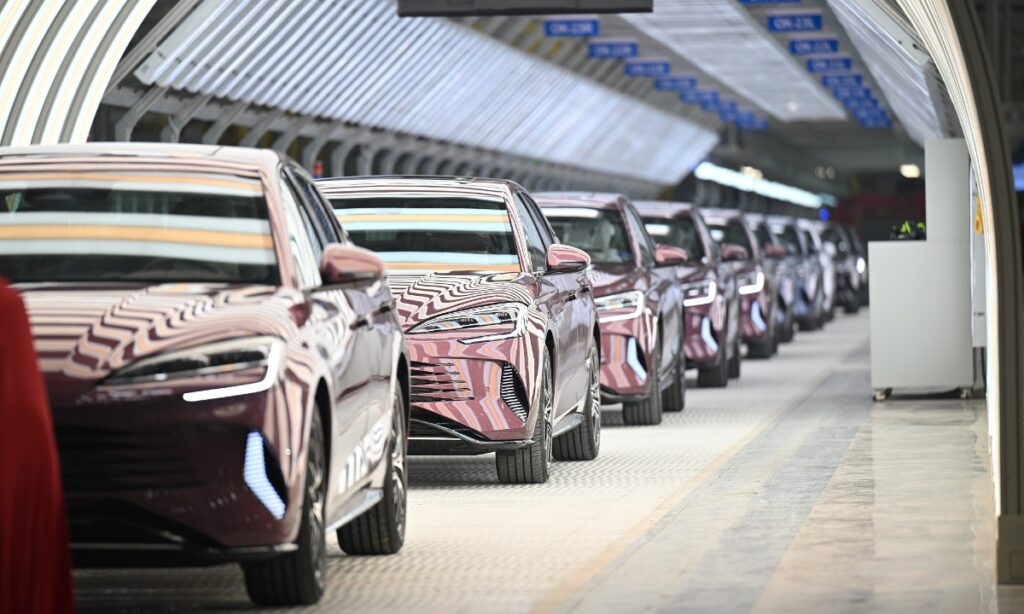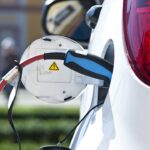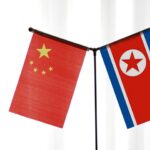Germany carmaker BMW urges Germany to vote against the additional high tariffs on China-made electric vehicles (EV), the latest move by a key industry representative within the EU standing up to oppose the decision made by the European Commission (EC), citing concerns for an escalating trade dispute.
In a statement released by BMW on Wednesday, the company’s CEO Oliver Zipse urged the German government to tread cautiously regarding proposed tariffs on Chinese EVs.
The imposition of these tariffs could, in his view, not only damage Germany’s robust export industry but also “catalyze retaliatory response from China, thereby deepening the rift,” according to BMW.
The remarks were made as the EU plans to vote on October 4 on whether to impose tariffs as high as 45 percent on imported EVs from China, which has been slightly delayed amid last-minute negotiations between the two sides to try to find a resolution that would avoid the new levies, Bloomberg reported on Saturday. The member states have received a draft of the regulation for the proposed measures, and the new date could still change, according to reports.
The initial date for the vote was reportedly planned for September 25, according to media reports.
The delay reflects the divergent attitudes of EU member states toward trade measures, as these protectionist tendencies could harm the economic interests of many EU countries and the open and cooperative trade relations established with China over the years, Cui Hongjian, a professor at the Academy of Regional and Global Governance with Beijing Foreign Studies University, told the Global Times in a recent interview.
The economic stakes of the EV tariffs are particularly high for BMW and other German carmakers, who have a significant footprint in China, BMW stated on Wednesday.
German firms exported vehicles and parts worth 26.3 billion euros ($29.10 billion) to China last year alone, the statement said, citing data from the Association of the Automotive Industry, the main industry advocacy for Germany’s mighty auto sector. Conversely, 6.8 billion euros worth of automotive goods flowed in the opposite direction, highlighting the interdependency between the two markets, the statement said.
For BMW, which manufactures the electric MINI Cooper and Aceman in China, any disruption could have immediate repercussions on its bottom line, the carmaker said.
This is not first time that the German carmaker has expressed its concerns regarding the EV tariffs.
In July, Zipse said in a statement sent to the Global Times that the EU’s approach is impractical and potentially damaging to European car manufacturers engaged in global operations.
Mercedes-Benz Group also told the Global Times in a previous statement that the company always “supports a liberal trade regulation based on WTO rules. This includes the principle that all participants find the same conditions. Free trade and fair competition ensure prosperity, growth and innovation.”
China has conducted extensive talks with the EC and EU member states regarding the EV tariffs. In September, Chinese Commerce Minister Wang Wentao visited Italy, Germany, Belgium and the EU headquarters, and held in-depth and friendly talks with the heads of the counterpart departments, especially with European Commission Executive Vice President and Trade Commissioner Valdis Dombrovskis on the EU’s anti-subsidy case against China’s EVs. The two sides reached a preliminary consensus on the direction of negotiations for a proper resolution of the matter.
GT




